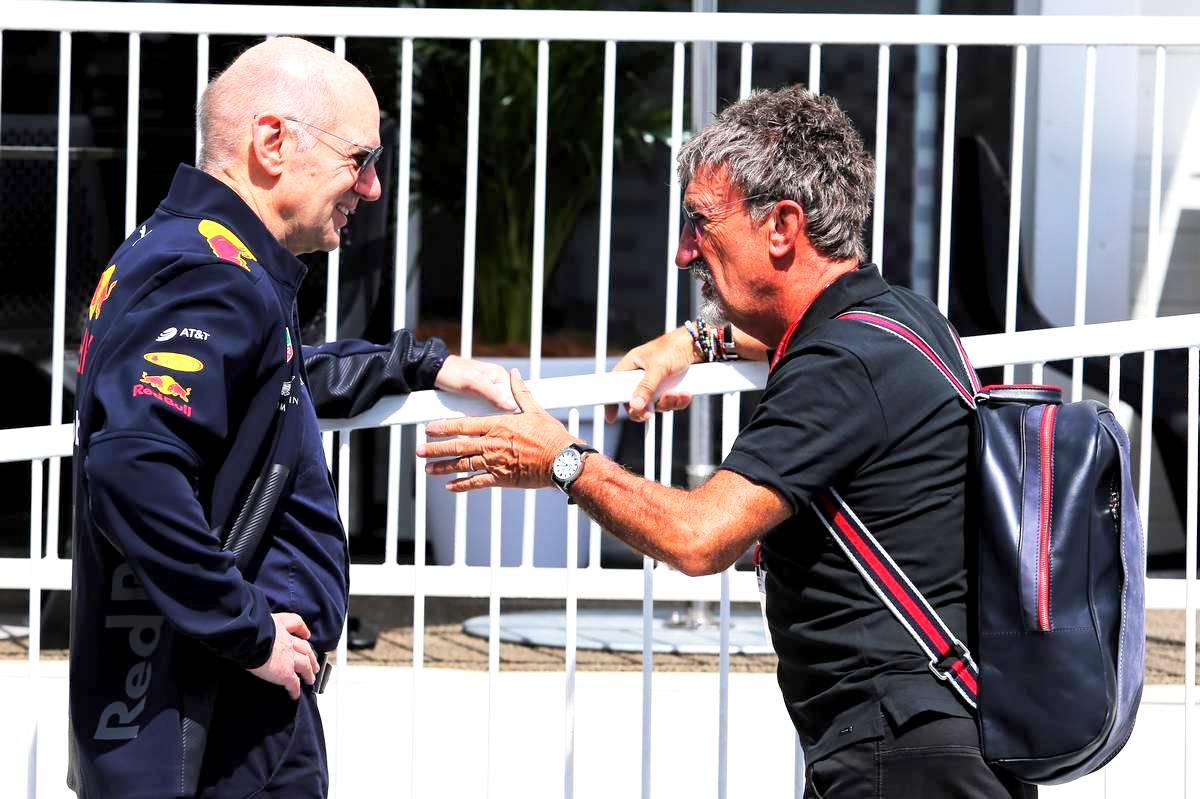By Aglaia Pezzato on SwimSwam

For an event as significant as the World Swimming Championships to take place, it takes more than just the athletes, coaches, and judges we see in front of the cameras. Behind the large panels surrounding the pool lies an entire village of professionals who ensure that everything runs smoothly. From event scheduling to transportation, from designated press areas to spaces for photographers, there’s a whole team working behind the scenes. To make sure the show goes on (and continues as it should), it takes a diligent and organized conductor. Mike Unger, former COO of USA Swimming and now Senior Advisor for World Aquatics, oversees all the unseen work behind an event like the one held in Doha. SwimSwam caught up with him at the end of the 22-day competition in Qatar, asking him about the biggest challenges faced.
“The entire event is a massive event. It’s six sports. It’s not just swimming. I come from swimming, but every sport is unique and has its own challenges and successes as well. The first time that the World Championships, the big World Championships (the Short Course World Championships took place in Doha in 2014), came to the Middle East, I think it was fantastic. It’s good for the sport. For us, though, the hard thing is fitting so many events in a very tight time period. So we just finished Fukuoka eight months ago, and this is massive planning.”
“We rely on an organizing committee that works hard, and they’re dedicated to getting the job done. And it’s funny because they did a site visit as an observer. They came to Fukuoka, and one of the lead staff from the Doha organizing committee said after that, everyone got their eyes wide open -oh my gosh, we only have eight months to go. So it was like, oh my gosh, we gotta get moving on this. – But they’ve done brilliantly, really. So many aspects of this are, are just so much first class, and we’re very fortunate to have sites that host our events. And so I think Doha has been a fantastic site.”
About the crowd present in the stands in Doha (you can read more about this here):
“I think that some nights have been better than others. There are certainly teams that didn’t bring their full teams here. We know that. We know that Paris is only in five months. But a lot of that has to do with maybe, the top athletes in the world are not here. Maybe that would bring a bigger crowd in. We’ve had a number of events here from the Swimming World Cup and the Diving World Cup.”
“I was here in 2014 working for USA Swimming at the time. There weren’t big crowds then. But I think crowds have been better now than they were then. Last night I was talking with (deck interviewer) John Mason on the deck over here, and he said, there’s a vibe tonight. You can feel a little bit better tonight. And that’s that’s good. Not every night was a perfect night on attendance, but they’ve done pretty well over the last few weeks to sell some tickets and to get some audience here.
“How do you convince people that your sport is something that should follow? Sometimes, you have to do that one person at a time. You have to move your culture.”
Mike Unger is the person who has taken care of one of the largest events in world sports, the US Olympic Trials, for almost 30 years. Regarding the differences between this event and the one that took place in Doha, he said:
“A group of people were behind the US Olympic Trials, so I wouldn’t take sole responsibility for it. But certainly, I worked seven of them And that just means I’m old. I think it’s different. You know, in the US, there’s the head marketing guy. I don’t think it’s another swim meet in the world that has the tension that if you swim well, you’re on the team. If you don’t, you’re off the team and even, you know, World Championships, Olympic Games. But you can’t go to the Olympics if you don’t make the Olympic team. And as far as I know, no other country does it exactly that way. Ian Thorpe fell off the starting block in 2004 and still made the Olympic team. So there was a way there when Michael Phelps the night before 2008 trials if he had gotten sick the night before the 2008 trials, he wasn’t going to be on the US Olympic team.”
“It’s just it’s a different tension; it’s not about the technical things behind the organization but about the pressure that you feel about that. I think that in the US, when you go to a normal meet, there aren’t that many people there. There are some who have reasonably good attendance. But for Olympic trials, you get this audience that is not even swimming related that come to it because it’s a show.”
“We’ve been around places in Fukuoka last summer. So the crowds were great. I mean, they weren’t great for all sports, but for swimming, they were excellent. The summer before, we were in Budapest for water polo. You can’t get a seat. Right. So there are certain parts of the world where the sport, the aquatic sports, are like lifeblood. They really are woven into the culture of that sporting country. So, I don’t know, it’s different every time. And that’s what makes it a great event, is that you don’t get the same thing. Every time I look here at so many athletes who are, maybe they wouldn’t have been stars in Fukuoka last summer. But they’re stars here.”
SwimSwam: Mike Unger Of WA:”You Have To Convince People To Follow Your Sport One Persona At The Time”





![IPL 2024 [Photos]: Meet SRH’s mystery girl, Sai Ramya Pasupuleti](https://crickettimes.com/wp-content/uploads/2024/05/Sai-Ramya-Pasupuleti.webp)












You must be logged in to post a comment Login